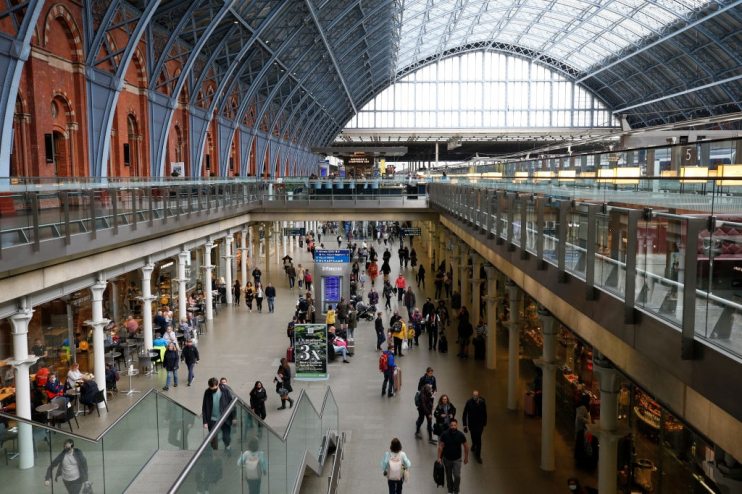City Hall calls for a long term London transport plan as regions set to receive £7bn Budget boost

City Hall has warned that there can be no UK recovery without a strong London recovery in transport as it was revealed that Chancellor Rishi Sunak will allocate almost £7bn in next week’s Autumn Budget to funding urban transport in city regions across England.
In a move aimed at the government’s “levelling up” agenda, cities will share a pot of around £5.7bn for sustainable transport schemes under the plans, and another £1.2bn will be funneled into bus service improvements.
The funds will be shared across England’s seven mayoral city regions – which are mainly based in the Midlands and northern England – but will not include London.
The Treasury said it was focusing on the regions to “deliver Transport for London (TfL)-style improvements to speed up journey times, simplify fares and increase the number of services outside of the capital.”
Sunak said: “There is no reason why somebody working in the north and midlands should have to wait several times longer for their bus or train to arrive in the morning compared to a commuter in the capital.”
“This transport revolution will help redress that imbalance,” Sunak added.
But City Hall has called on the government to provide a similar long term deal for London and warned that the deadline is looming for the current TfL funding deal, which expires on 11 December.
“For every £1 spent on the London Underground investment alone, 55p is paid to workforces located outside London, with TfL contracts contributing around £6.4bn to the economy overall,” a spokesperson for the Mayor of London told City AM.
“When London succeeds, the UK succeeds and vice versa and there can be no UK recovery from COVID-19 without a strong London recovery to help drive it.”
It comes after the government promised £4bn for these regional cities in 2019, and Boris Johnson pledged a £3bn fund for buses last year, which suggests only about £1.5bn of what the Treasury is calling a “multibillion-pound overhaul of local transport” is comprised of new funds.
Greater Manchester, West Midlands and South Yorkshire will receive tram improvements, Liverpool and Runcorn will receive new stations, Darlington and Middlesbrough stations will get an upgrade, Manchester will receive new bus corridors, and the A4 near Bristol will be improved as part of the schemes allocated to the funding.
London left behind
London’s TfL, mayor Sadiq Khan, and transport industry leaders have repeatedly called for a new long-term sustainable funding model for the capital’s transport, after a multi-billion series of government bailouts in the past few years that have seen the revenue-based funding model labelled “not fit for purpose”.
“The current TfL funding deal from Government expires on 11 December, and the Mayor has been clear that short term deals are not sustainable, and don’t allow for long term budgeting and planning of the major projects London’s transport network needs,” the mayor spokesperson told City AM.
“It is vital that a long-term, sustainable and fair funding model for TfL is agreed with Government, with enough flexibility to accommodate whatever impact the pandemic may have on demand long-term.”
TfL has received three emergency funding packages from central government since March 2020, but Commissioner Andy Byford has made clear he wants a sustainable, longer-term investment deal that allows the body to plan ahead.
Sunak’s announcement comes just three weeks after TfL asked the Treasury for half a billion worth of support for the rest of the financial year and for a further £1.2bn next year to “ensure London’s recovery” from the pandemic.
Documents submitted by the capital’s transport authority to the government’s spending review included a commitment from TfL to return to a financially sustainable by 2023.
The body has cut planned spending on enhancements and extensions by £5.7bn as a result of the “harsh realities” of a collapse in revenues across the network during Covid-19 lockdowns.
London’s transport network was on a path to an operational surplus before the pandemic hit.
The UK’s devolved governments in Scotland, Wales and Northern Ireland will also receive additional funding through the Barnet formula alongside the new investment, which the Treasury said it will outline in full in next week’s budget.